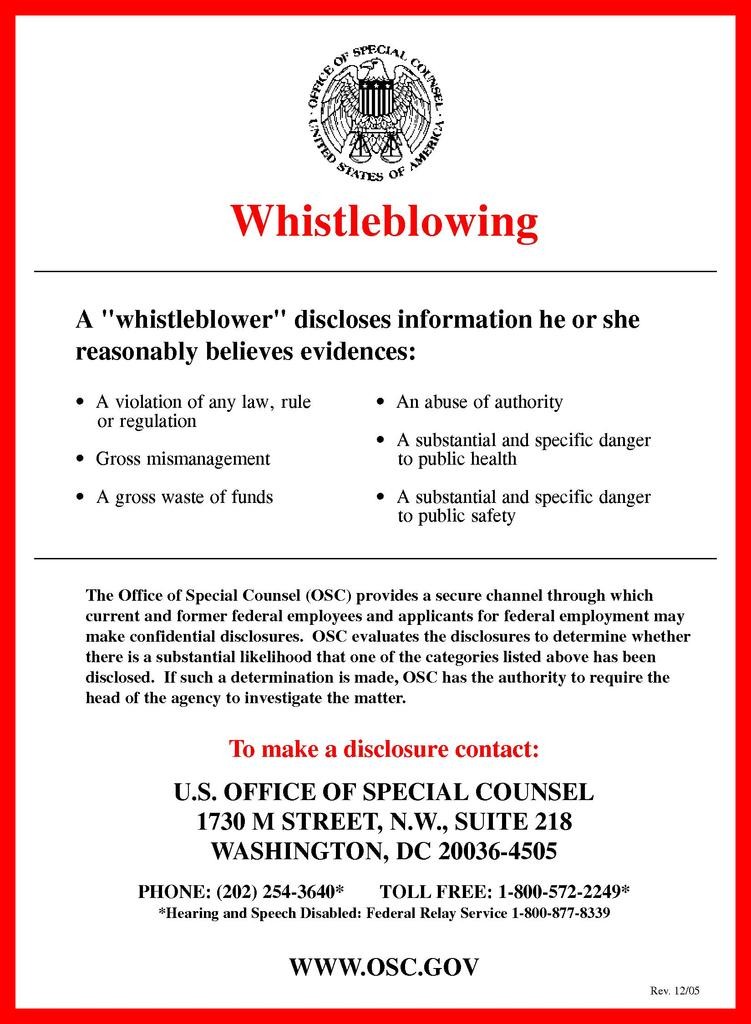Supreme Court Extends Whistleblower Protection To Millions Of Small Companies
Post on: 16 Март, 2015 No Comment

Follow Comments Following Comments Unfollow Comments
The U.S. Supreme Court today ruled the whistleblower protections in the Sarbanes-Oxley financial-reform law extend to employees of contractors of public companies, in a decision supporters say will rein in the accountants and other outside contractors who closed their eyes to financial scandals at Enron and Worldcom, but which defense lawyers say could expose millions of small businesses to opportunistic employee suits.
The court, in a decision by Justice Ruth Bader Ginsburg. rejected Fidelity parent FMR’s argument that only direct employees of public companies should receive protection. FMR, like most mutual fund companies, operates its funds with zero employees under a contracting arrangement with separately incorporated investment advisors. It sought to avoid liability under a whistleblower-retaliation case filed by Jackie Hosang Lawson, a former senior director of finance who claimed she was punished for disclosing certain cost-accounting improprieties.
Fidelity warned of “absurd results” if the whistleblower protections under Sarbox were extended to employees of every contractor working for a public company. Justices Anthony Kennedy, Samuel Alito and Sonia Sotomayor also dissented, saying the decision sweeps in low-level employees who will be able to file federal retaliation claims after witnessing trivial offenses.
As interpreted today, the Sarbanes-Oxley Act authorizes a babysitter to bring a federal case against his employer—a parent who happens to work at the local Walmart (a public company)—if the parent stops employing the babysitter after he expresses concern that the parent’s teenage son may have participated in an Internet purchase fraud. And it opens the door to a cause of action against a small business that contracts to clean the local Starbucks (a public company) if an employee is demoted after reporting that another nonpublic company client has mailed the cleaning company a fraudulent invoice.
“For 10 years employees of smaller contractors likely believed that it would be an exercise in futility to bring claims” under Sarbox, said Steven J. Pearlman, a partner in Proskauer’s Chicago office who focuses on whistleblower defense. “Now that there is a clear Supreme Court precedent we can expect them to bring cases.”
But the law is clear, the Supreme Court ruled. Congress ordered protection for “any officer, employee, contractor, subcontractor, or agent” of any public company. In the case of the FMR executive working for a fund manager, the court said, “it is implausible that Congress intended to leave such an employee remediless.”
This despite the fact that the heading on the section of the law covering whistleblowers says: “Protection for Employees of Publicly Traded Companies Who Provide Evidence of Fraud.”
Ginsburg, in the majority opinion, said there is “scant evidence” that the floodgates scenario is “more than hypothetical.”

“Few housekeepers or gardeners, we suspect, are likely to come upon and comprehend evidence of their employer’s complicity in fraud,” she wrote.
Pearlman said the threat is very real that enterprising employment lawyers will seek out contractor employees now with any plausible claim of retaliation that can be tied to a financial matter. Under federal labor law an employee need only show that retaliation was a factor in his or her demotion or dismissal under a low preponderance-of-the-evidence standard. Employers, on the other hand, must provide clear and convincing evidence the employee was fired for legitimate reasons.
The result is that employees can file relatively weak cases with the anticipation employers will settle to avoid even larger legal bills. Millions of contractors of public companies, meanwhile, will have to hire lawyers like Pearlman to devise compliance plans and defense strategies if they want to minimize the risk. The financial improprieties employees can claim to have blown the whistle on include mail and wire fraud, which have extremely broad definitions and could include virtually anything impacting a public company’s finances or the activity of its employees.
The dissent drew a surprising mix of conservative justices and the somewhat liberal Sotomayor. Archconservative Justice Antonin Scalia signed off on the majority opinion, but with a generous helping of snark. He criticized Ginsburg for attempting to figure out what Congress meant to accomplish when it wrote the law, instead of simply interpreting the words on the page.
Reliance on legislative history rests upon several frail premises. First, and most important: That the statute means what Congress intended. It does not. Because we are a government of laws, not of men, and are governed by what Congress enacted rather than by what it intended, the sole object of the interpretative enterprise is to determine what a law says. Second: That there was a congressional “intent” apart from that reflected in the enacted text. On most issues of detail that come before this Court, I am confident that the majority of Senators and Representitives had no views whatever on how the issues should be resolved —indeed, were unaware of the issues entirely.














